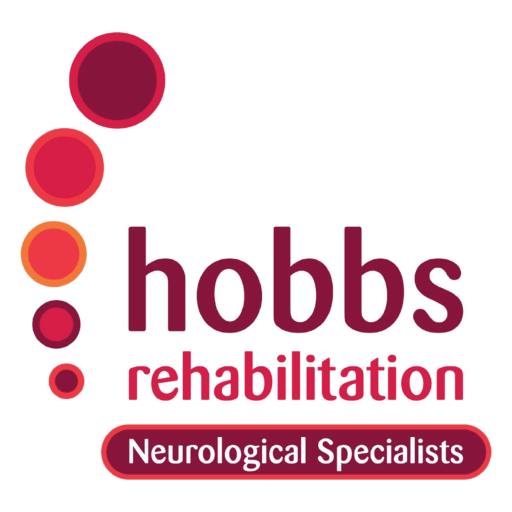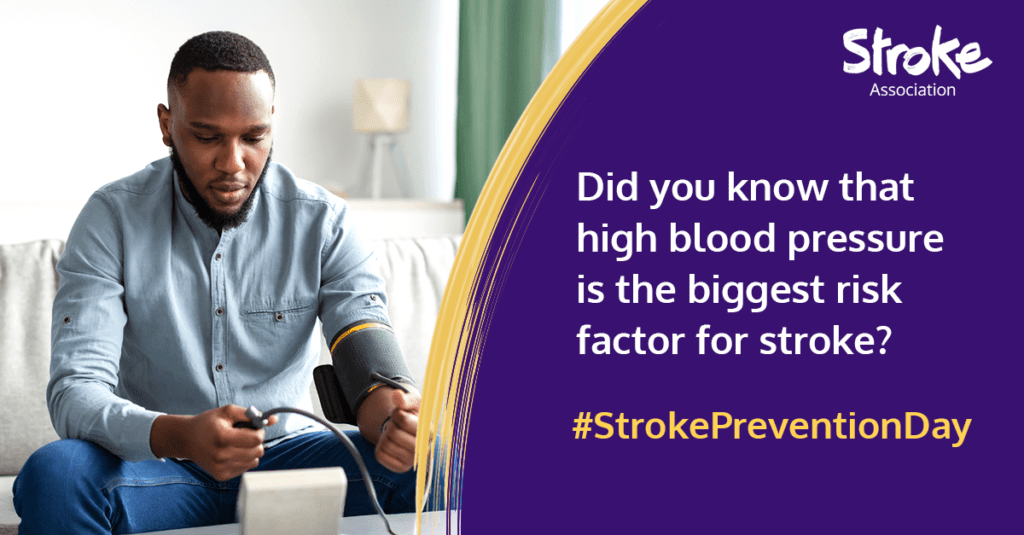Stroke Prevention Day 2025, January 30th:
Every year, the Stroke Association dedicates a day to raising awareness about the importance of stroke prevention. With a stroke happening every five minutes, more than 100,000 people are affected annually. Strokes can be life-altering and can strike anyone, regardless of age. That’s why it’s crucial to come together, recognize the risks, and share knowledge on how we can reduce the chances of this devastating event.
“In the early days at our Winchester centre where Hobbs started, around two-thirds of our patients were affected by stroke. As we have grown as a business and expanded across the south of England, we now deliver a full stroke service including outpatient, inpatient and intensive rehab. Through the MiNT Academy, we help shape the future of stroke rehab by co-designing neurotechnology and our patients get involved in clinical trials for new and emerging technology specifically targeted for this sector. Our mission to be research active, to contribute educational resources to drive clinical excellence and to advance stroke rehab at a national and strategic level is what drives positive outcomes for our patients.” – Kirsti Pretty, Strategic Director at Hobbs Rehabilitation.
At Hobbs Rehabilitation, we support those who have experienced a stroke, offering not just short-term care, but long-term support. We understand that preventing another stroke is just as important as recovery, which is why we’re committed to helping our patients build lasting strength and resilience every step of the way.
A Focus on High Blood Pressure
The focus of this year’s Stroke Prevention Day 2025 is high blood pressure. Being the biggest, single risk factor of strokes, high blood pressure has an enormous part to play in strokes.
Blood pressure plays a vital role in delivering oxygen and nutrients throughout the body. When it remains consistently high, it can damage blood vessels, leading to clots or brain bleeds, which may cause a stroke.
How can we reduce the risk of high blood pressure causing another stroke?
The most important prevention of high blood pressure is making healthy lifestyle changes.
- Exercise: Incorporating daily exercise, like a brisk 30-minute walk or a refreshing swim at your local pool, can massively reduce high blood pressure
- Healthy diet: Having a more healthy, nutritious, and well-rounded diet positively impacts blood pressure
- Smoking and alcohol: Cutting smoking and alcohol out of your diet is one of the best changes for blood pressure
Preventing Further Strokes at Hobbs Rehabilitation
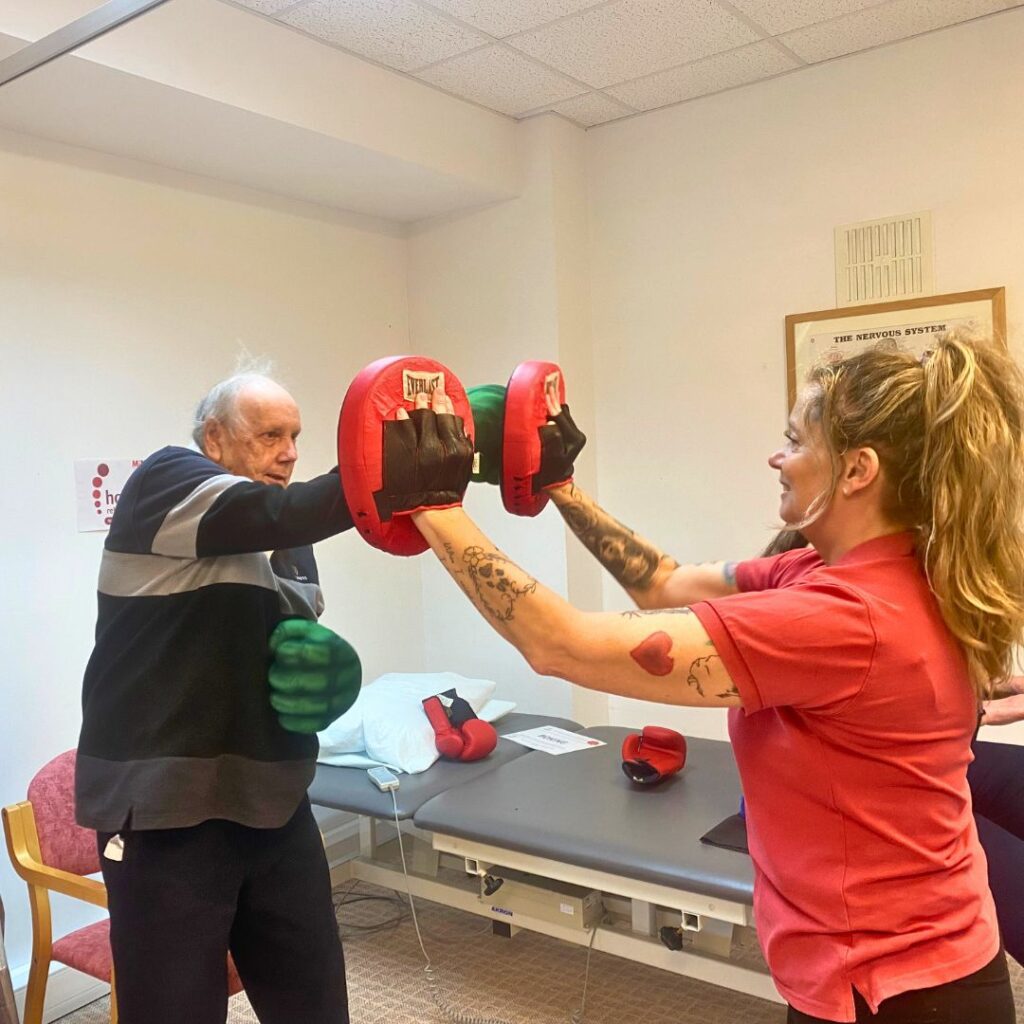
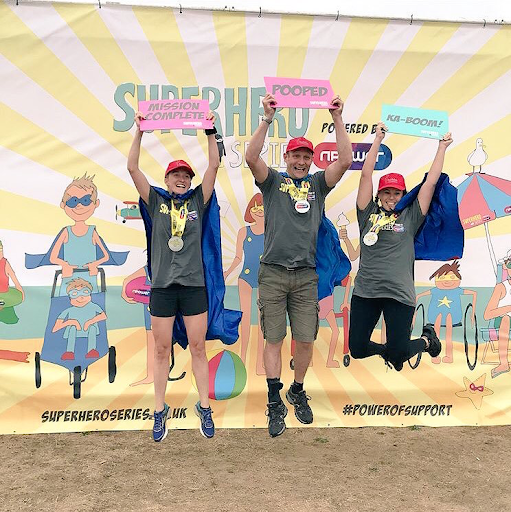
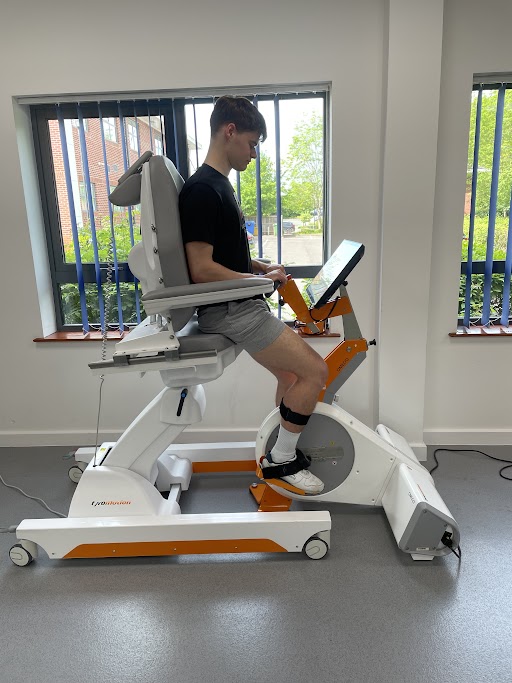
Our Services:
At Hobbs Rehabilitation, we offer intensive rehabilitation packages tailored to help individuals achieve their personal recovery goals after a stroke. Our multidisciplinary team works collaboratively to provide comprehensive care for stroke recovery patients, such as our Clinical Neuropsychology service, or our Speech and Language Therapy:
“Stroke affects families too and Neuropsychology has a vital role to play in how the person with the Stroke, and those around them, make sense of life.” – Dr Ben Papps, Consultant Clinical Neuropsychologist and Head of Service
“Things like expressing your opinions, social chats with friends, arguing with your husband, ordering drinks in a pub or getting back to work. That is what makes us who we are and losing communication abilities can have a profound effect on self-esteem, mood, confidence, independence and our social roles. Speech therapy input needs to last much longer to allow time for these more complex, but very important skills to be explored and hopefully recover further.” – Jen Mellows, Specialist Speech and Language Therapist
Head over to our multidisciplinary stroke service page to discover more!
Our Exercise Groups:
We offer exercise classes designed for stroke survivors and those with neurological conditions, promoting a healthy lifestyle through regular activity. These classes help reduce high blood pressure and lower the risk of future strokes, providing a great way to start positive lifestyle changes.
Hobbs Rehabilitation South East Moving On Up:
- A popular exercise class for stroke recovery that promotes physical activity
- Includes circuit exercises to get the heart pumping and help reduce blood pressure
Hobbs Rehabilitation Winchester HELP Hampshire:
- A collaboration with the NHS Foundation Trust and Hobbs Rehabilitation with the aim to prevent a secondary stroke from occurring
- Includes weekly exercise classes to improve long-term rehabilitation with healthy lifestyle management and support
Our Neurotechnology:
At Hobbs Rehabilitation, clinical rehabilitation is just one of the many ways we support our stroke patients. Our neurotechnology has been proven to make a significant impact on blood pressure and stroke recovery.
Our advanced range of neurotechnology, such as the G-MOVE SUIT, LEXO®, and the OMEGO®, is designed to help stroke patients boost their physical activity in a way that’s accessible, comfortable, and highly effective.
Our Research:
Research is crucial in deepening our understanding of how neurotechnology can transform the lives of those with chronic stroke, enhancing both their functionality and overall quality of life.
“One of the studies we’re most proud of is working with the new GMOVE compression suit.” – Louis Martinelli, Specialist Neurological Physiotherapist
Using the GMOVE suit for a period of 12 weeks, this particular study showed that people with Chronic Stroke had improved their ability to walk and decreased their central systolic blood pressure, therefore lowering the risk of a second stroke.
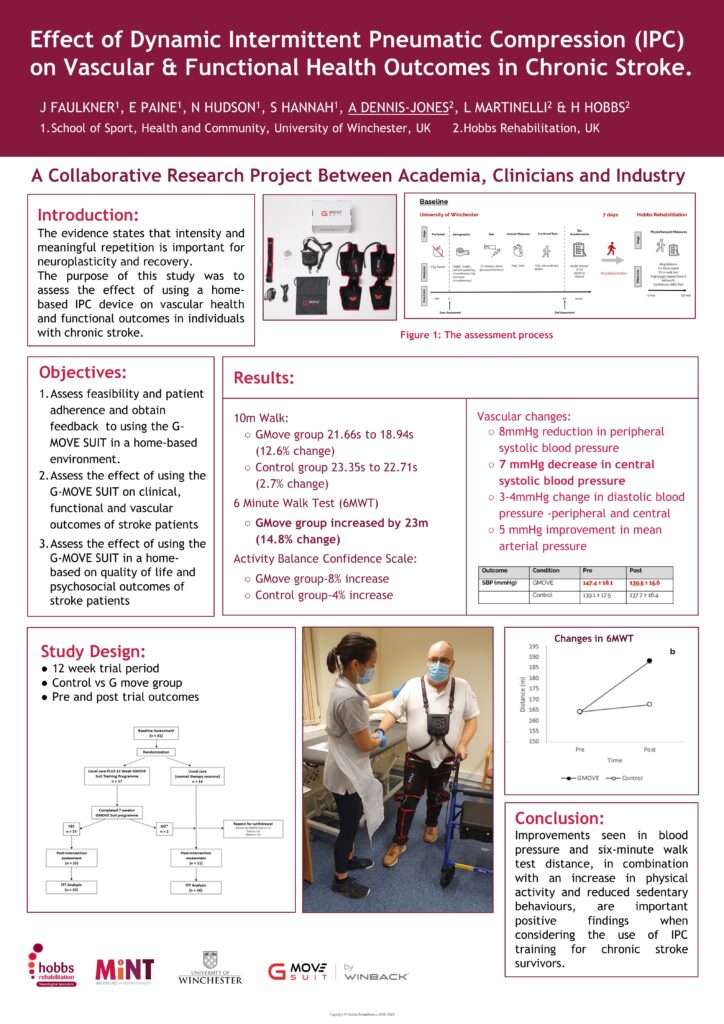
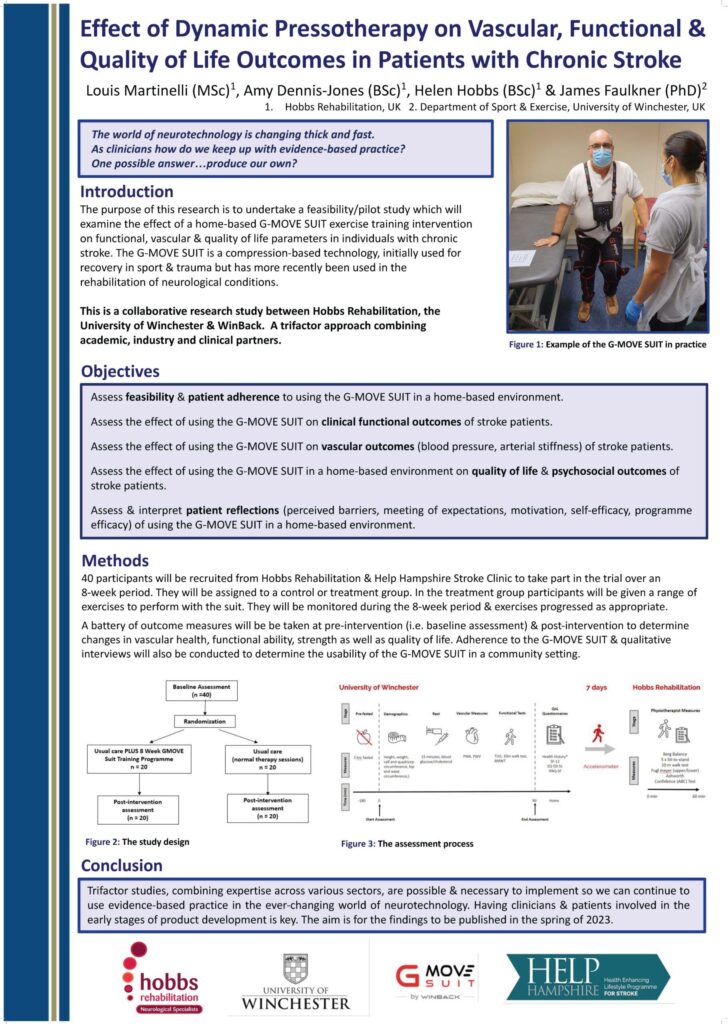
Contact
For more information on Stroke Prevention Day 2025 or Hobbs Rehabilitation’s stroke service, contact:
enquires@hobbsrehabilitation.co.uk
OR visit the Stroke Association website
